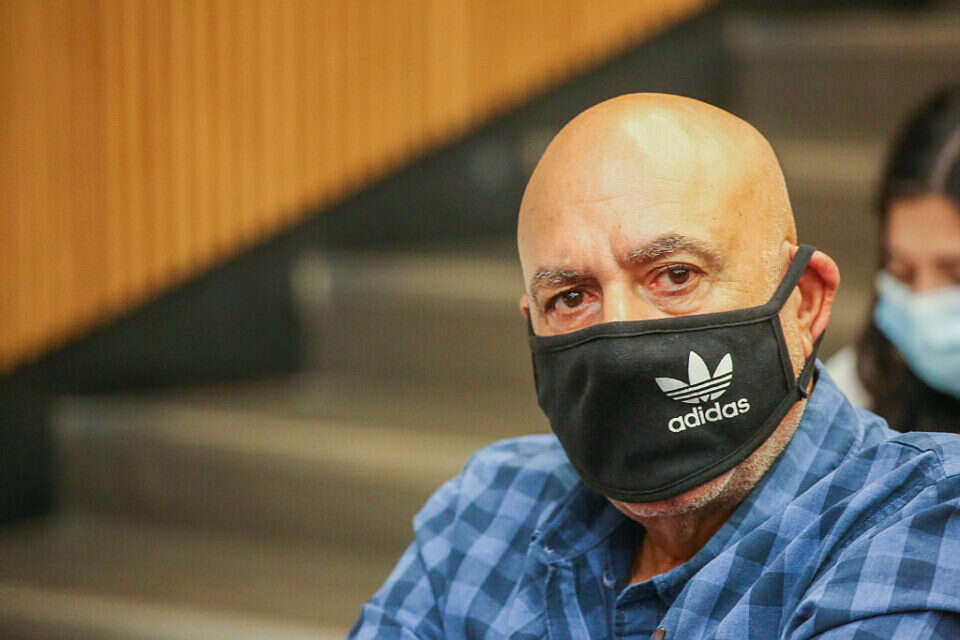The Supreme Court ruling upheld the conviction of Nisso Shaham, who was a senior police chief, for three offenses.
The first two do not cause difficulty: indecent act (kiss without consent) and sexual harassment (text messages of a sexual nature) towards policewomen.
There is no dispute that these are despicable acts and offenses.
The problem is the conviction for the third offense: "fraud and breach of trust."
This is a bad legacy from the British Mandate.
The offense is defined as bad, too broad, vague and does not define what is actually an "act of breach of trust that harms the public."
The Knesset should enact a ban that would define situations of breach of trust, such as conflicts of interest, guide behavior in advance and not surprise people after the fact.
For 73 years, the Knesset has not fulfilled its role of replacing the Penal Code with a law that is appropriate today.
In the meantime, the judges must uphold the principle of legality and set clear limits to the ban, certainly not extend it.
Experts believe the offense is unnecessary, slips into the realms of discipline and ethics, and captures behaviors that do not fit the drasticity of criminal law.
This is a "basket offense", the existence of which harms autonomy and human dignity.
In American law a vague prohibition is declared by the court to be unconstitutional and void.
In Israel, the court has not yet revoked a ban in violation of the Basic Laws.
In the Shebes judgment, the judge's correspondent found that the judges failed to establish a clear test of the elements of the offense.
The prosecution failed to point to a particular act of Shaham that constitutes the offense, and suggested expanding it through the following thesis: Even if each act is not an offense, several different acts of the defendant can be accumulated, in different cases, and an overall conduct is a breach of trust that offends the public.
The acts attributed to Shaham are making intimate connections with policewomen, and years later making decisions about them.
But the justice of the peace, who examined the facts in depth, ruled that in all contexts it was a conflict of interest of very low intensity, which is very far from the criminal realm.
Criminal law is supposed to govern the principle of legality set forth in the law: "There is no offense and there is no penalty for it, unless they are provided by law or under it."
The principle is accepted in all countries, and its purposes are a fair warning to the citizen and maintaining the separation of powers.
Without it we have no liberty, since a person can easily be accused of conduct that is close to conduct that is defined as an offense.
Shaham's actions were despicable, immoral and appropriate to disciplinary action and dismissal - and indeed he was fired; And in two cases constituted criminal offenses of indecent act and sexual harassment. Society's commitment to the principle of legality and human liberty is examined when it comes to ugly acts, which are not defined by law as an offense. Of the three justices of the Supreme Court, only Justice Elron, and before him Justice of the Peace Sagi, stood the test and ruled that the offense of breach of trust had not been formulated. Resist the temptation and convict Shaham of breach of trust as well, while expanding the offense.
A big problem is that the majority judges, under the influence of wrong things previously written by Justice Barak, are willing to rely on the "purpose of the legislation" and determine that the defendant has violated a protected value.
But whoever is empowered to determine what is the conduct whose violation of the protected value justifies a criminal prohibition is the legislature.
The new ruling, which has already been the subject of academic criticism of the expansion of the offense, is another undesirable step.
Shaham could and should have been convicted and punished for past sexual offenses, without extending in his honor the offense of breach of trust, trampling on the principle of legality and restricting the freedom of citizens.
If the rule is not observed that any conduct that is not expressly prohibited by law is permitted - we have no liberty.
Also, the expansion of the offense of breach of trust, combined with its frequent use against elected officials, have created an instrument that endangers the respect of the will of the electorate and democracy.

